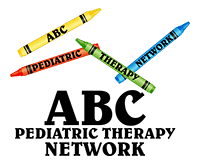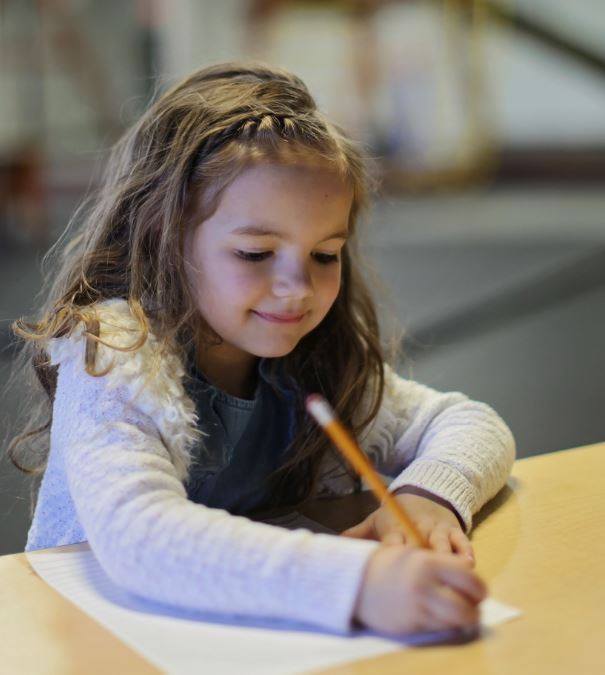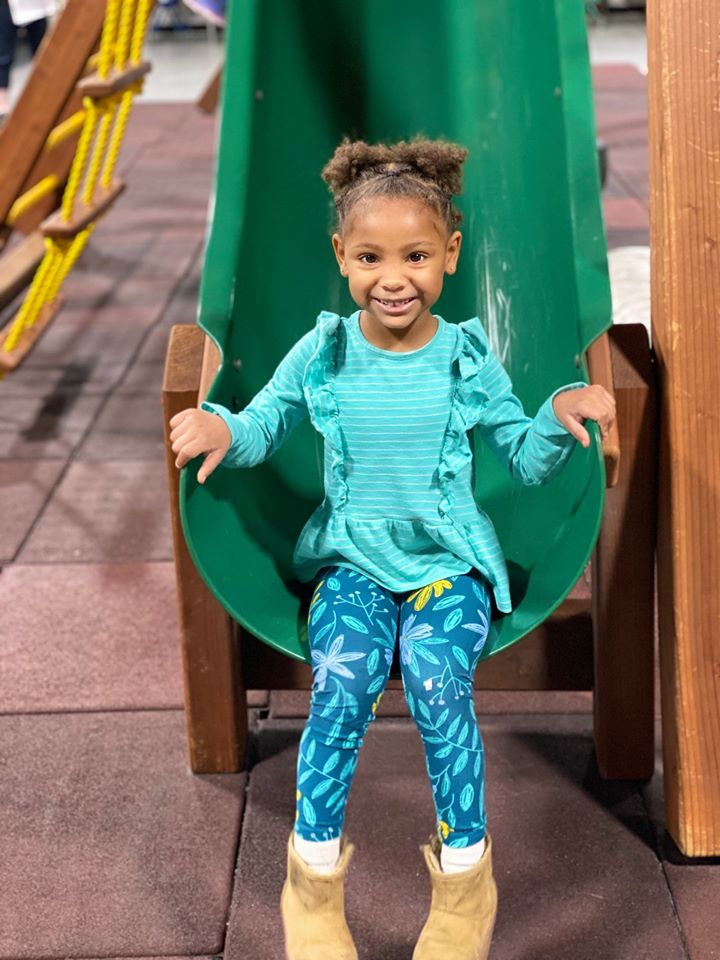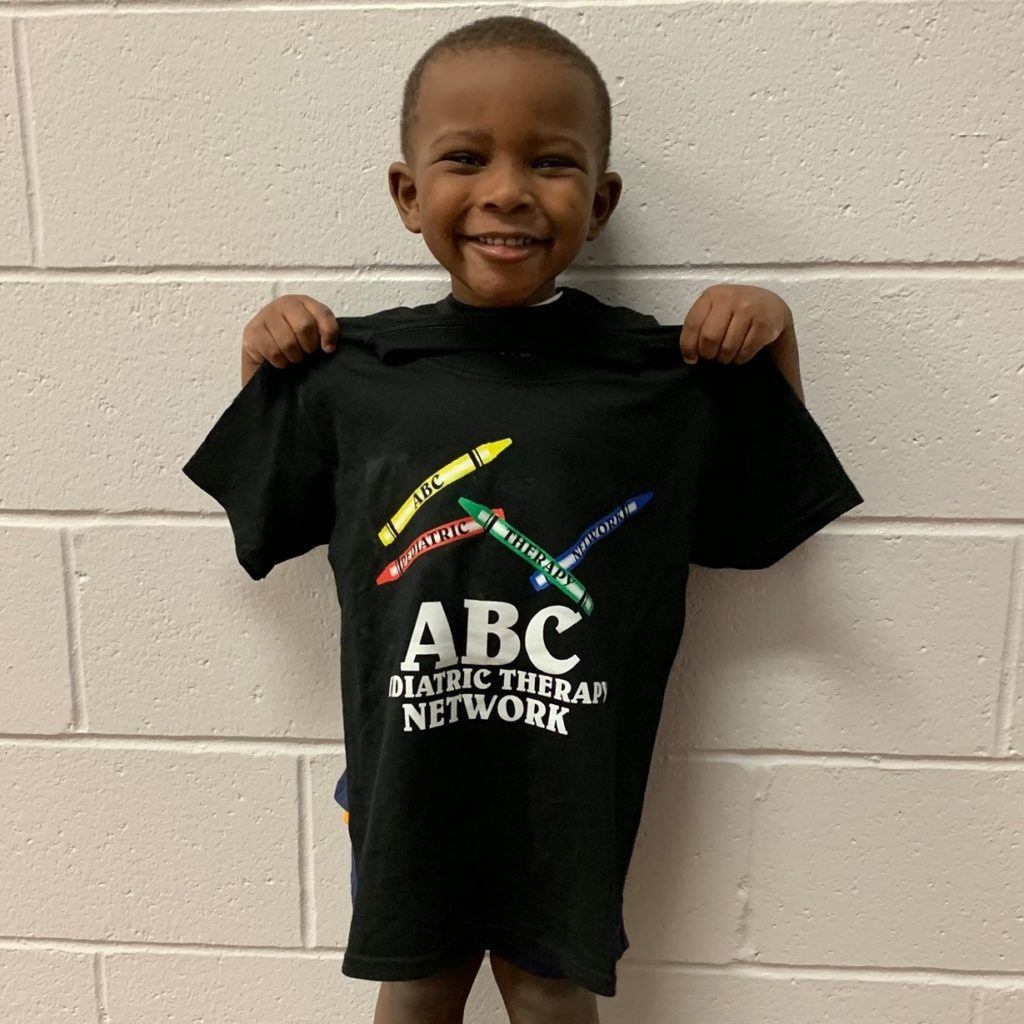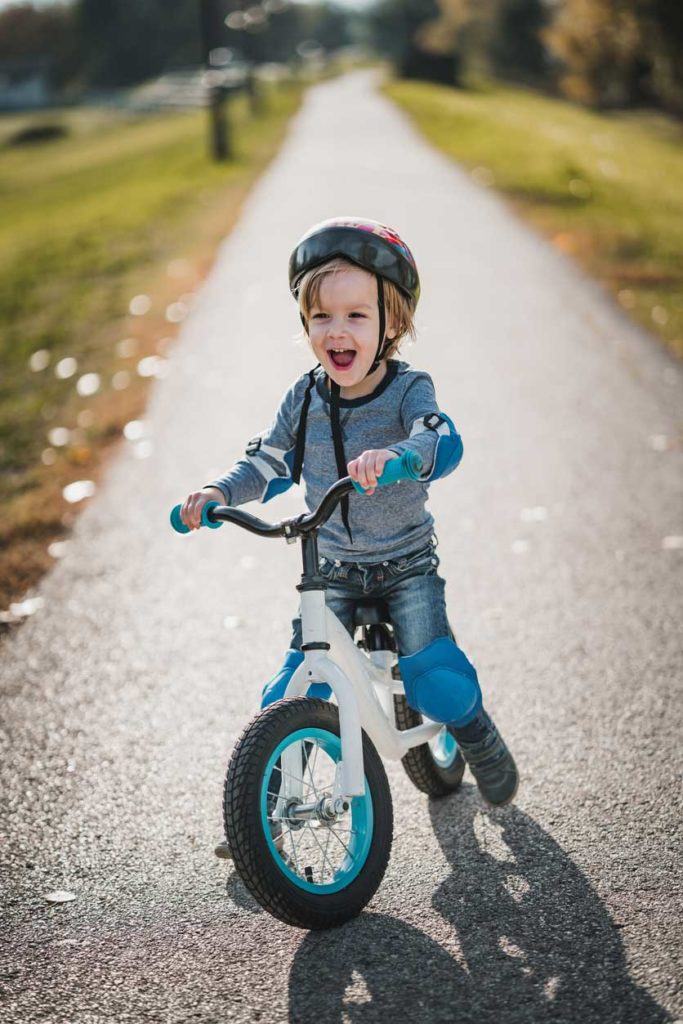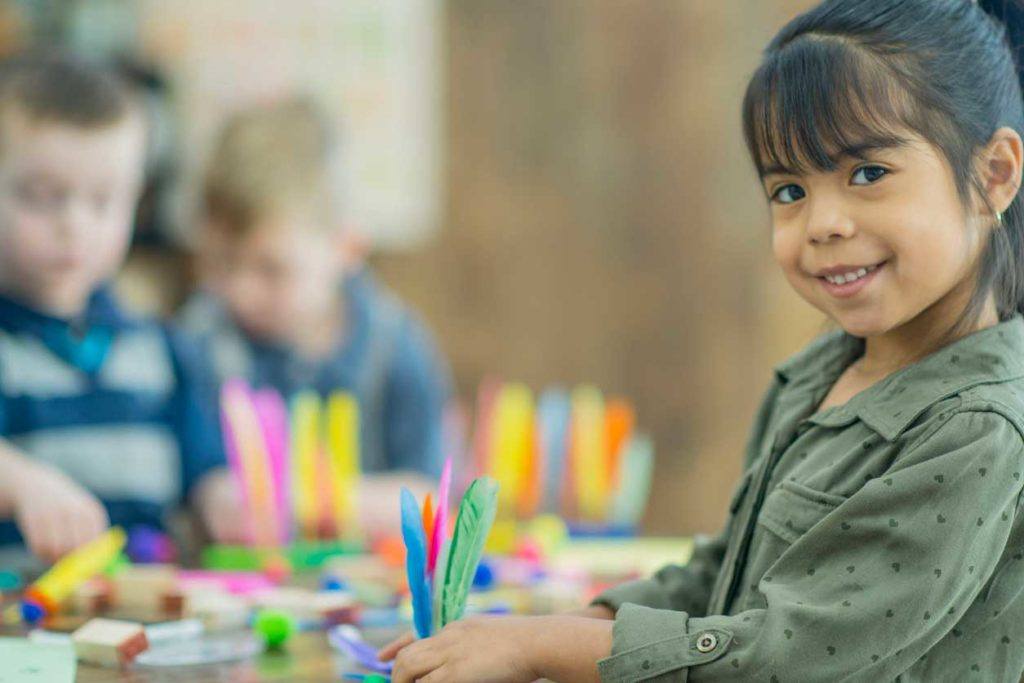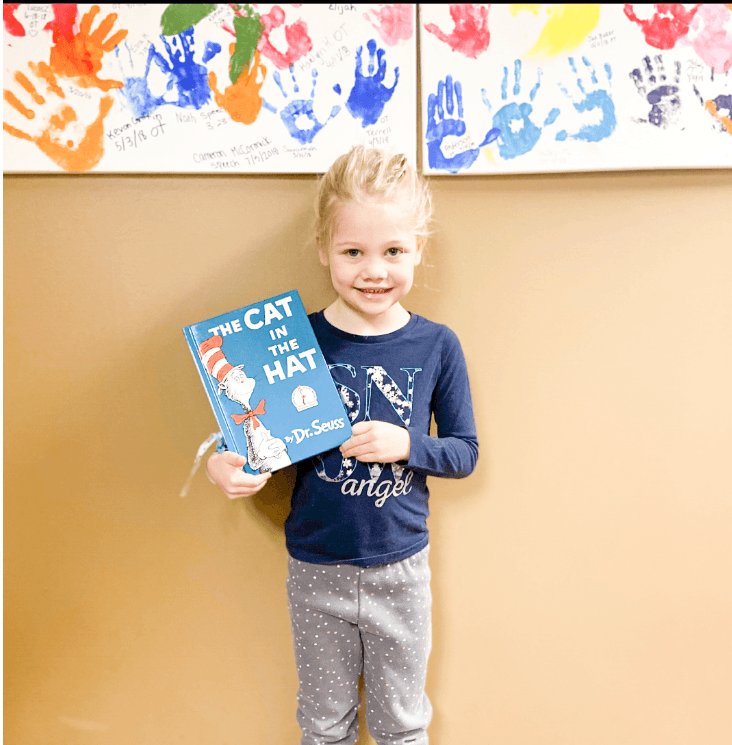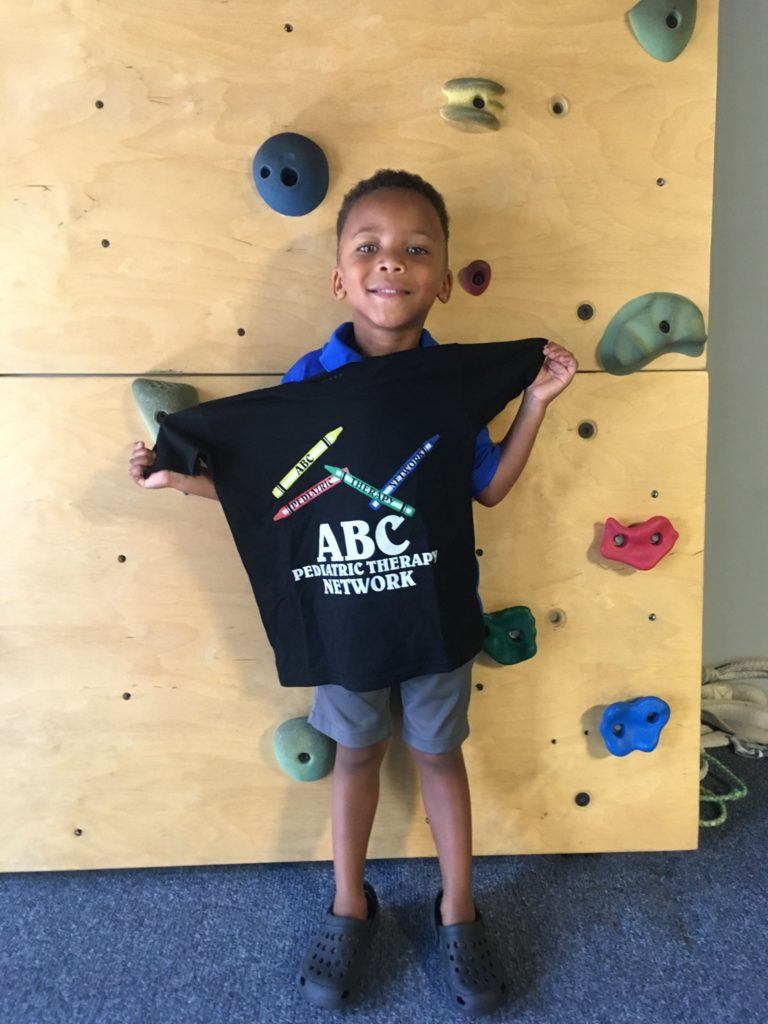Your Child’s Fifth Year
At this age it is important to continue to encourage independence and growth with activities of daily living for school readiness as they begin Kindergarten. It is expected for your child to have mastered the following skills by the age of 6 years.
Milestones – Kindergarten Age
- Skips using opposing arms and legs for at least 10 feet while maintaining balance
- Roller skates
- Bounces and catches small ball
- Kicks ball at least 12 feet
- Rides bike with training wheels
- Stands on either foot with eyes closed for at least 5 seconds, eyes open for at least 10 seconds
- Dribbles a ball walking forward
- Jumps forward 36 feet
Interesting Fact: Childhood development experts generally say that a reasonable attention span to expect of a child is two to three minutes per year of their age. That’s the period of time for which a typical child can maintain focus on a given task.
- Colors between lines
- Cut basic and complex shapes on the line without deviations
- Completes simple dot-to-dot pictures
- Copies color/shape sequences
- Draws triangle and X
- Imitates writing first name
- Draw a human figure with at least 8 parts
- Dresses self with correct orientation
- Ties shoes independently
- Completes fasteners on self (snap, button, zipper clasp)
- Puts belt through loops
- Bathes self with help to fill tub and wash hair for safety
- Brushes teeth with follow up from parent for thoroughness
Interesting Fact: Milestones develop in a sequence fashion. This means that a child would need to develop some skills before he or she can develop new skills.
- Eats a variety of food textures from all food groups
- Is able to eat a meal with the rest of the family, within 30-40 minutes
- Willing to try new foods
- Sufficient at using utensils at mealtime
- Takes appropriate bites of food, does not overstuff mouth
- Can drink from an open cup, straw, or water bottle without spilling
- Chews food sufficient enough that does not result in chocking, or gagging
- Does not pocket food in cheeks
- Uses a variety of sentences
- Has a vocabulary of 2000 or more words
- Uses all speech sounds correctly
- Is 100% intelligible
- Asks questions to get more information
- Can describe objects and carry a plot when telling a story
- Can follow multi-step directions without repetition
- Demonstrates good eye contact
Interesting Fact: Research has shown that children who are read to by their parents have a larger vocabulary than other children.
- Starts to feel sensitive about how others feel about them
- Plays in different textures including glue, finger paint, and sand
- Enjoys playing on jungle gym equipment such as swings, rock wall, trampoline, and slide
- Is aware of risky and unsafe behaviors
- Easily adapts to changes in routine
- Usually able to self calm to fall asleep
- Has an established sleep schedule
- Tolerant of hair cuts and nail trims
- Tolerant of new clothes and various clothing textures
- Interest in simple board games, competitive games, cooperative games; understands rules of fair play
- Compromises to facilitate group play
- Plays with a single object or theme for 15+ minutes
- Demonstrates understanding of others’ feelings
- Costumes and props are more important for pretend play; emphasis is on reality than imaginary
- Begins interest in making recognizable products; attends to detail when constructing and making it useful
- Compromises to facilitate group play
Interesting Fact: Your child should be able to recite their full name, age, and address by the age of 7.
- Twister game
- Board games that encourage turn taking, group play, and playing fair
- Child size corn hole or ring toss
- Hopscotch
- Bike
- Two wheeled scooter
- Zoomball
- Dot-to-dot and word search books
- Simon Says
- Roller Skates
- Balls of all sizes
- Puzzles
- Crafts – color, cut, paste, paint
- Legos
- Action Figures
- Play Kitchen
- Dolls / Doll House
Interesting Fact: Each child is an individual and may meet developmental milestones earlier or later than their peers and/or siblings.
Red Flags for Development in the Fifth Year
- Poor coordination of two sides of the body (jumping jacks)
- Avoids crossing the midline of their body
- Delayed hand dominance or mature grasping pattern for handwriting
- Difficulty identifying uppercase letters
- Left-Right confusion
- Difficulty manipulating small objects such as coins into a piggy bank
- Inability to assume and hold “dead bug” or “superman” position
- Difficulty answering questions with more detail
- Unintelligible when speaking
- Uninterested in playing with others
- Extreme fears that interfere with daily activities
Developmental Checklist
Is your child meeting their developmental milestones?
Through steady improvement, your child can attain a boost of confidence.
Help your child find new levels of independence with pediatric therapy in Cincinnati and Dayton, OH.
 Skip to content
Skip to content